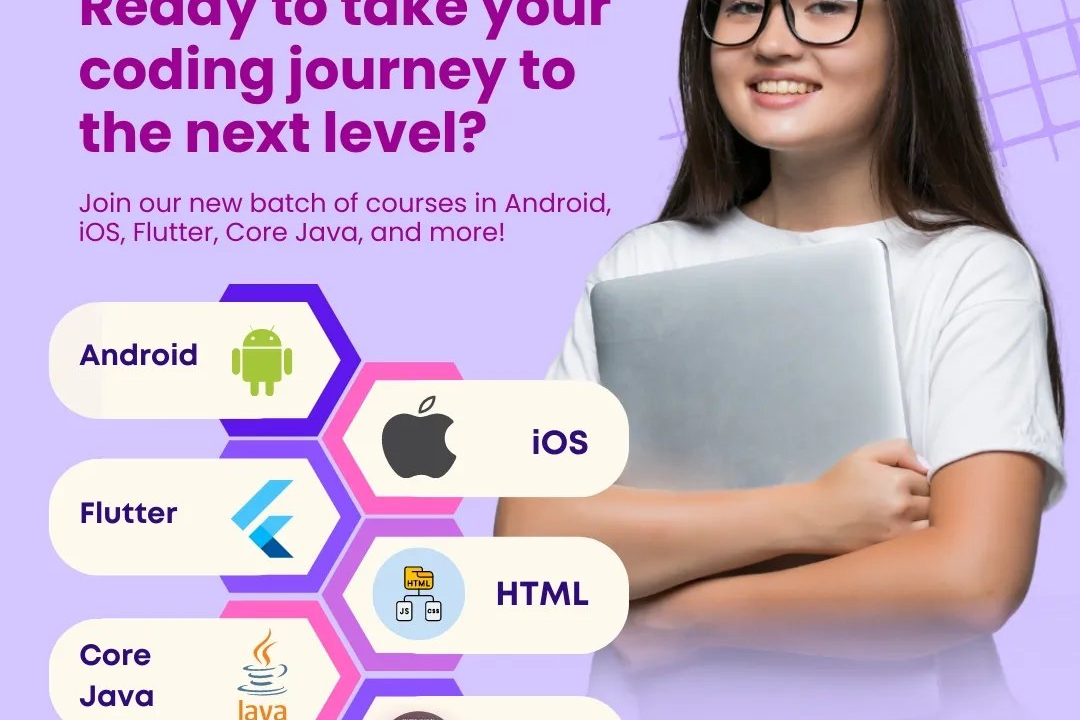Basic Programming Questons Php
Basic programming questions in PHP focus on fundamental concepts and skills that every developer sho
Basic Programming Questons Php
Basic programming questions in PHP are essential for anyone looking to establish a solid foundation in web development. They cover crucial topics such as variables, control structures, functions, and data types, which are fundamental to writing effective and efficient PHP code. Understanding these basics enables developers to build dynamic web applications, troubleshoot errors, and implement best practices in their coding. Moreover, grasping these concepts is vital for progressing to more advanced programming challenges, ensuring that developers are well-equipped to handle real-time projects and enhance their overall skill set in the competitive tech landscape.
To Download Our Brochure: https://www.justacademy.co/download-brochure-for-free
Message us for more information: +91 9987184296
Basic programming questions in PHP are essential for anyone looking to establish a solid foundation in web development. They cover crucial topics such as variables, control structures, functions, and data types, which are fundamental to writing effective and efficient PHP code. Understanding these basics enables developers to build dynamic web applications, troubleshoot errors, and implement best practices in their coding. Moreover, grasping these concepts is vital for progressing to more advanced programming challenges, ensuring that developers are well equipped to handle real time projects and enhance their overall skill set in the competitive tech landscape.
Course Overview
The “Basic Programming Questions in PHP” course at JustAcademy is designed to provide learners with a comprehensive understanding of fundamental programming concepts through practical examples and real-time projects. Participants will explore essential topics such as variables, data types, control structures, functions, and error handling, which are crucial for effective PHP programming. By engaging in hands-on exercises and solving common programming problems, students will develop their coding skills and gain the confidence needed to tackle more complex challenges in web development. This course lays a strong foundation for aspiring developers, enabling them to apply their knowledge in real-world applications and advance their careers in the tech industry.
Course Description
The “Basic Programming Questions in PHP” course at JustAcademy offers an interactive learning experience aimed at beginners looking to master essential PHP programming skills. Participants will delve into key concepts such as variables, control structures, functions, and data types, all through practical exercises and real-time projects. By addressing fundamental programming questions and challenges in PHP, students will not only build a solid foundation in coding practices but also gain the confidence to apply their knowledge in real-world scenarios. This course is an ideal starting point for those aspiring to pursue a career in web development or enhance their programming abilities.
Key Features
1 - Comprehensive Tool Coverage: Provides hands-on training with a range of industry-standard testing tools, including Selenium, JIRA, LoadRunner, and TestRail.
2) Practical Exercises: Features real-world exercises and case studies to apply tools in various testing scenarios.
3) Interactive Learning: Includes interactive sessions with industry experts for personalized feedback and guidance.
4) Detailed Tutorials: Offers extensive tutorials and documentation on tool functionalities and best practices.
5) Advanced Techniques: Covers both fundamental and advanced techniques for using testing tools effectively.
6) Data Visualization: Integrates tools for visualizing test metrics and results, enhancing data interpretation and decision-making.
7) Tool Integration: Teaches how to integrate testing tools into the software development lifecycle for streamlined workflows.
8) Project-Based Learning: Focuses on project-based learning to build practical skills and create a portfolio of completed tasks.
9) Career Support: Provides resources and support for applying learned skills to real-world job scenarios, including resume building and interview preparation.
10) Up-to-Date Content: Ensures that course materials reflect the latest industry standards and tool updates.
Benefits of taking our course
Functional Tools
1 - PHP Interpreter
The PHP interpreter is a crucial tool for any student learning PHP. It allows students to write and execute PHP code in real time, making it easier to test and debug their scripts. By running their code through the interpreter, learners can see immediate results and understand how each line of code influences the overall functioning of the program. This hands on approach promotes a deeper comprehension of language syntax and execution flow.
2) Integrated Development Environment (IDE)
Using an IDE such as PhpStorm, Eclipse, or Visual Studio Code enhances the learning experience. These tools provide features like code highlighting, auto completion, and debugging capabilities, which simplify the coding process. IDEs allow students to manage their projects efficiently and focus on writing high quality code by reducing common programming errors and increasing productivity.
3) Version Control Systems (VCS)
Employing Git as a version control system is essential for students to learn collaborative programming. Git enables them to track changes in their code, collaborate with peers, and manage project versions effectively. Understanding version control fosters good coding practices and prepares students for real world scenarios where teamwork and code management are critical.
4) Database Management Systems (DBMS)
Students gain exposure to database management tools like MySQL or PostgreSQL during the course. Understanding how to interact with databases using PHP is fundamental for creating dynamic applications. These tools teach students how to perform CRUD (Create, Read, Update, Delete) operations within a database, enhancing their ability to develop web applications that manage and store data efficiently.
5) Debugging Tools
Debugging tools like Xdebug or built in debugging options in IDEs are vital for identifying and resolving issues in code. Students learn to track down errors and optimize their code performance, which is a key skill for any developer. Mastering debugging techniques through these tools helps instill confidence in students as they navigate complex coding challenges.
6) Frameworks and Libraries
Familiarity with popular PHP frameworks like Laravel or CodeIgniter can enrich the learning experience. Students are introduced to these frameworks to understand their structure and benefits, such as improved code reusability and enhanced security features. Learning to utilize frameworks simplifies complex tasks and allows students to build scalable applications more efficiently, bridging the gap between basic programming skills and advanced software development.
7) Online Collaboration Tools
Utilizing online collaboration tools such as Slack, Trello, or Microsoft Teams enhances communication and project management for students. These platforms enable team members to work together effectively, share ideas, and track project progress. Familiarizing students with these tools prepares them for the modern workplace, where collaboration is key to successful project completion.
8) Testing Frameworks
Introducing students to testing frameworks like PHPUnit is essential for developing robust applications. Learning how to write and run tests allows students to ensure their code behaves as expected, helping them identify potential issues before deployment. This practice cultivates a culture of quality assurance and reinforces the importance of writing maintainable code.
9) APIs and Web Services
Understanding how to interact with APIs (Application Programming Interfaces) is a crucial skill for PHP developers. Students learn to consume and create APIs, which is pivotal for building applications that communicate with other services. This knowledge prepares them to integrate third party functionality into their applications, expanding their potential as developers.
10) Content Management Systems (CMS)
Familiarity with popular content management systems like WordPress can greatly benefit students. Learning to customize and extend a CMS gives students practical experience in web development and design. This knowledge can be applied to real world projects, as many businesses rely on CMS for their online presence.
11 - Responsive Design Techniques
Incorporating responsive design principles into PHP projects helps students understand the significance of adaptable UI/UX. By learning how to create mobile friendly applications, students gain insights into front end and back end integration, essential in today’s multi device environment.
12) Server Management and Deployment Skills
Educating students about server management, hosting options, and deployment strategies is critical for real world applications. Familiarity with platforms like AWS or DigitalOcean, along with skills for configuring web servers, gives students an edge in understanding how their applications will run in a production environment.
13) Environment Configuration Management Tools
Introducing tools like Docker for environment management teaches students how to create isolated development environments. This knowledge helps eliminate the “it works on my machine” syndrome, making projects more portable and reducing deployment issues.
14) Soft Skills Development
Training in soft skills such as problem solving, critical thinking, and communication empowers students beyond technical skills. These skills are essential for effective collaboration in teams and successful interactions with clients and stakeholders in a professional setting.
15) Project Portfolio Development
Encouraging students to build a personal project portfolio showcases their skills to potential employers. This practical application of learning not only solidifies their understanding but also provides tangible evidence of their capabilities in PHP development.
16) Continuous Learning Mindset
Instilling the importance of continuous learning is vital in the rapidly evolving tech landscape. Encouraging students to stay updated on the latest PHP trends, tools, frameworks, and best practices equips them for long term success in their careers.
By integrating these tools, techniques, and skills into your PHP course offerings, JustAcademy can enhance the learning experience and produce well rounded, capable PHP developers ready to tackle real world challenges.
Browse our course links : https://www.justacademy.co/all-courses
To Join our FREE DEMO Session:
This information is sourced from JustAcademy
Contact Info:
Roshan Chaturvedi
Message us on Whatsapp: +91 9987184296
Email id: info@justacademy.co











